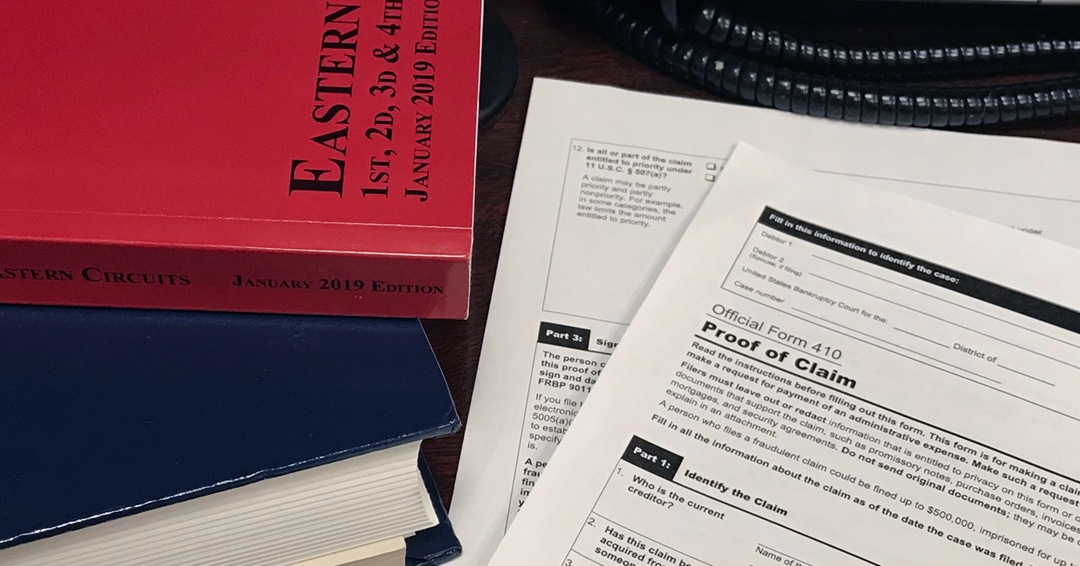By Leo M. Gibbons, Esquire-
When one of your customers files bankruptcy, it can cause significant disruption in your own business, especially where you do substantial business with that customer, or it files for bankruptcy owing you a substantial amount of money. The impact on your business includes not only the prospect of not being paid or receiving very little on unpaid invoices but also the loss of future business from the bankrupt customer. An additional problem and one often unforeseen is when the bankruptcy trustee or a lawyer representing the bankruptcy debtor contacts you and demands the return of payments you received from the bankrupt customer within the 90 days before its filing bankruptcy. Under the bankruptcy code, these payments are called preferences and preferential payments by the bankrupt customer to you can be avoided and you can be required to pay back the money you received within 90 days of the customer’s bankruptcy. Making this issue even more difficult is that this claim can come two years or more after the customer files bankruptcy, long after you received the payment and likely long after you have used the funds to pay your businesses expenses. Perhaps most significantly, these claims can total tens of thousands or even hundreds of thousands of dollars or more.
As with all legal issues, it is important that you know your rights, and respond timely to protect those rights. In dealing with a claim for preferential payments to you by a bankrupt customer, you should keep in mind the following:
- Don’t ignore the demand from the Trustee or Lawyer. Sometimes the claim will come in the form of a letter and other times the claim will be made with you being served with a lawsuit. In either case, it is important that you do not ignore the claim even if only first notified by letter. You can use this time before the commencement of the lawsuit to prepare your defenses and even possibly settle the matter. By using this time to your advantage, you will be better prepared if the matter does end up in court.
- Don’t accept a small discount on the amount of the claim to settle. Often, the Trustee or attorney representing the bankrupt customer offer a small discount (usually 10%) to quickly settle the matter. This is done to avoid the time and expense of litigation and also because the trustee or lawyer is often paid out of the proceeds recovered from former trade creditors. By settling early, you may be forgoing substantial defenses that would save you much more than 10% of the claim. Often, the defenses could substantially knock down if not eliminate the claim made on behalf of the bankrupt customer.
- Keep your records related to your business dealings with the bankrupt customer. Your business records and course of business with the bankrupt customer are critical to your defenses against the claim. If the bankrupt customer filed for bankruptcy owing you money, you might be able to use these unpaid amounts to offset the claim now made against you. Additionally, the timing of the invoicing and payment and your relationship with the bankrupt customer may provide a defense if payments were made COD (cash on delivery) or the payments in question occurred within the “ordinary course” of your business with the bankrupt customer. “Ordinary Course” is a legal term of art that is the subject of many court decisions, and is an available defense that can substantially reduce a claim against you.
- File Proof of Claim. When a customer files for bankruptcy, if you are notified to file a Proof of Claim, always do so if you are owed money at the time they file bankruptcy. Although you may believe that prospects of ever getting anything from the bankrupt customer are small, unpaid invoices may serve as at least a partial defense to the claim against you as discussed above.
- Consult an experienced attorney. The defenses available to you under the Bankruptcy Code are substantial but can also be complex in both theory and application. You should consult an attorney with knowledge of the preference law, and that has experience in defending preference claims. It is very often the case that such an experienced attorney can save you substantially more money than if you accept the small discount usually offered by the trustee or attorney at the onset of the case.
As with all lawsuits, maintaining your records, knowing your rights and consulting with an experienced attorney are the best steps you can take when faced with a legal claim or lawsuit, and this is certainly true in the case of preferential payments made by a customer to you before it filing bankruptcy.

Leo M. Gibbons is a partner in MacElree Harvey’s Banking and Finance practice. Licensed in Pennsylvania, Leo advises financial institutions, businesses, individuals and owners of commercial real estate on creditors’ rights, loan enforcement, loan workouts, complex business disputes, bank litigation and secured transaction litigation, collection actions, foreclosure proceedings, and landlord/tenant disputes.
Leo can be reached at 610-840-0227 or [email protected].


